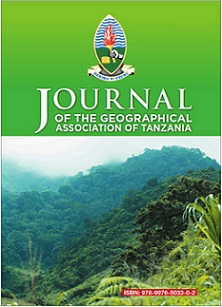The Impacts of Climate Change on Food Security in Tanzania: A case Study of Kilosa District
Abstract
In Tanzania climate change is manifested through the increase in atmospherictemperature and uneven distribution of rainfall to most of the areas in the
country. Farmers have reported the declining crop yields due to unpredictable
climatic conditions. The main objective of the study was to investigate on the
impact of climate change on food security. The specific objectives were to
examine the agricultural practices that are carried out in Kilosa District and the
activities that have been affected due to effects of climate change.. The study
was carried out in Lunezi and Lumbiji villages whereby 120 respondents were
selected for the study using simple random and purposively sampling. The
finding of the study revealed that climate change has resulted in unpredictable
rain, drought and floods, which have affected crop production. The study
recommends on the use of improved seed varieties and irrigation farming,
sensitization on environmental conservation and establishment of tree
planting programs. The study concludes that the change in climate through
human induced activities has affected accessibility and utilization of food
resulting to food insecurity.
Key words: Climate Change, food Insecurity, vulnerability
Downloads
Published
2016-02-12
Issue
Section
Articles


